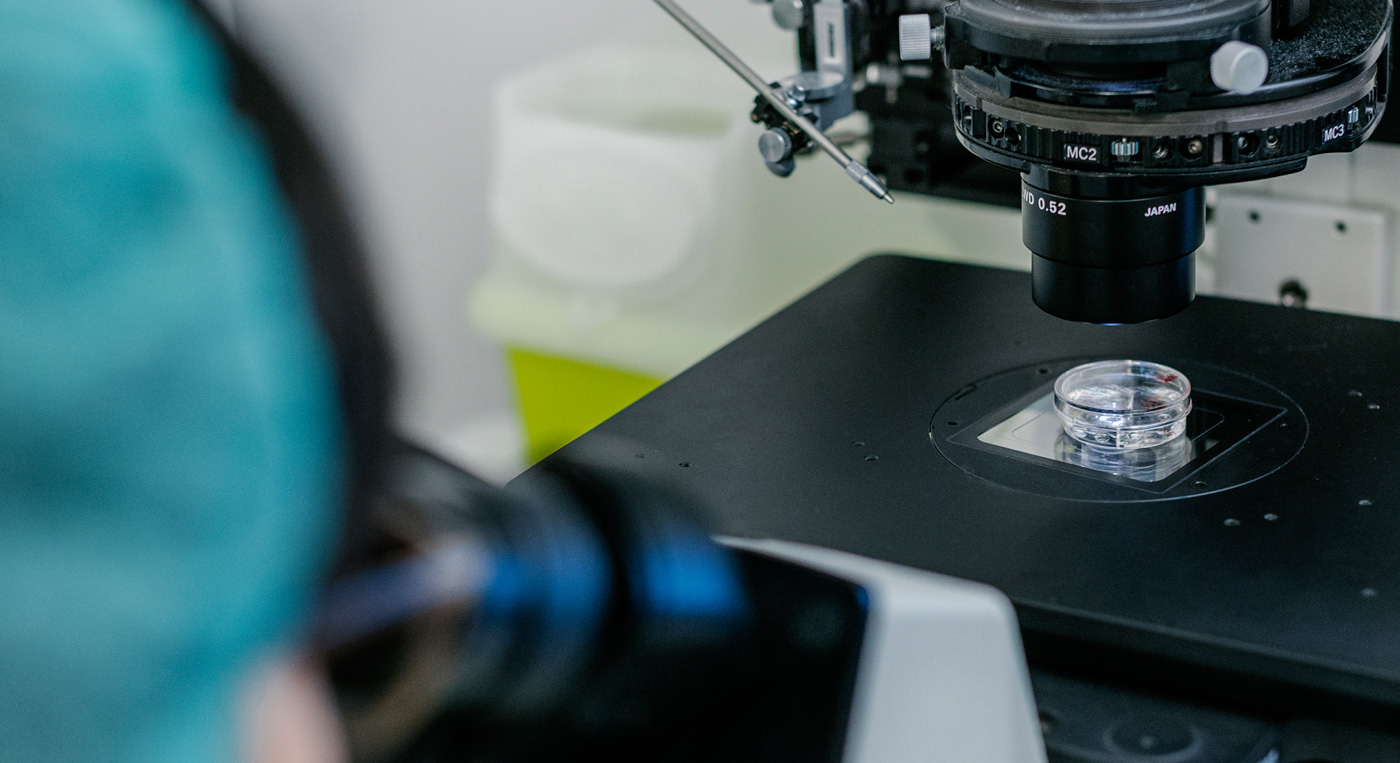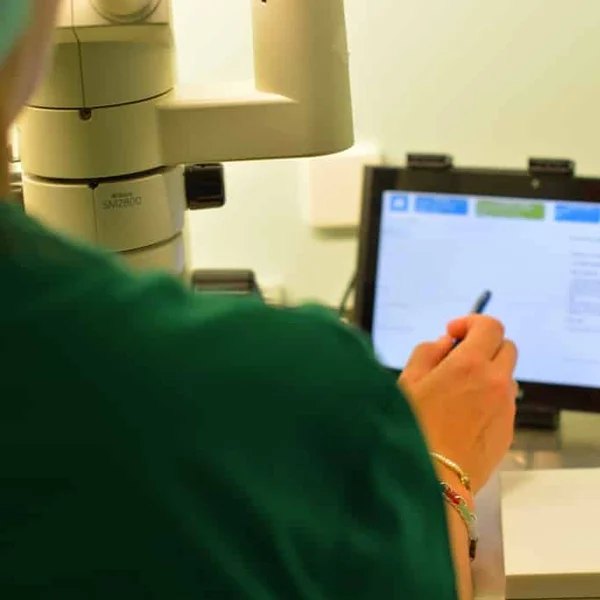
Assisted reproduction
Total safety in your fertility treatment: IVF
Patrol
Here at Ginefiv, we want to go one step further in the safety guarantees we offer our
patients. That’s why we use IVF Patrol in our assisted reproduction centres.
We don’t leave anything to chance in the processes in our IVF laboratory. The critical steps which could give rise to a possible incident have been very clearly identified and each one is subjected to double checking to guarantee that no mistakes are made.
IVF Patrol is an electronic safety system which allows us to guarantee our patients, during the entire assisted reproduction treatment – from the first consultation up to embryo transfer – a safe monitoring and identification of each sample.
RFID technology: How does IVF Patrol work?
RFID (Radio Frequency Identification) technology is used to assign each patient a card with a unique code which can be read at each step of a process involving the treatment of the patient or their samples (surgery, laboratory, etc.).
Throughout the entire treatment, all sample slides and/or tubes from the same patient are identified with self-adhesive RFID labels featuring the same radiofrequency code. This means that their identity can be checked at each phase (ovarian puncture, fertilisation, embryonic transfer).
If, at any time, samples from different patients are located in the same work zone, the system will notify the lab staff and the incident will be registered
RFID technology: No mistakes
Thanks to the radiofrequency system, sample control is constant seeing as their identification cannot be skipped. IVF Patrol therefore provides completely safe traceability throughout the treatment, allowing us to offer an extraordinary guarantee of safety.

Guarantees of the IVF Patrol system
- It allows each patient and their samples to be traced, increasing safety.
- It unequivocally identifies the patients without the need to use their name or surname as noted on the slides or tubes.
- It guarantees that the sample used is always the one provided by the patient.
- It automatically registers any incident or safety violation which may occur.
- It allows control over the workload of each biologist and the assignation of resources, preventing hypothetical mistakes caused by someone being overworked.
- It reduces the number of tasks in which a double check is required in the lab.
Other safety measures in the laboratory
In addition to IVF Patrol, Ginefiv applies all the controls and systems needed to guarantee the safety of our assisted reproduction treatments, including the following important ones:
Laminar flow cabinets: sample safety
All samples in our IVF lab are processed using laminar flow cabinets, i.e. cabinets that use a continuous horizontal flow of air which stops any airborne particles from coming into contact with the sample and contaminating it.
Additionally, in the case of samples from patients with infectious diseases, class II type A safety cabinets guarantee the safety of both the samples and the biologist.
The cabinets combine a horizontal airflow with a vertical airflow, stopping any particles from reaching the biologist. Furthermore, in both types of cabinet, HEPA filters, which are installed at the top, filter the air to avoid contamination of both the samples and the staff.
Oxygen and nitrogen control
Rooms containing nitrogen banks are equipped with oxygen level detectors in case there is a nitrogen leak and the oxygen level drops, seeing as a low oxygen atmosphere would be dangerous to anyone working there.
Double checking
Having a great team of professionals working in our IVF labs allows us to perform double checking. This is important because it means that we can always guarantee that each critical point of the process is doubly supervised. This applies to the handling of male gametes as well as female gametes and embryos.
There will always be two people at all critical points when there is a transfer from one slide to another, i.e. one person working and a second person who supervises the process, so that there is never any confusion. This double checking is carried out during semen freezing and capacitation, oocyte recovery, insemination, ICSI, embryo transfer, cryopreservation, etc. Double checking allows us to maintain a high level of safety in the traceability of the whole process





